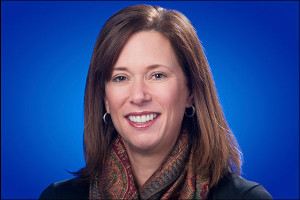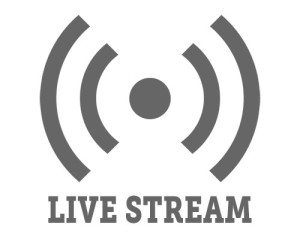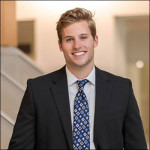School to Recognize 139 Candidates at December Graduation Ceremony
Commencement Will Begin at 2 p.m., Saturday, Dec. 19, in Jesse Auditorium

Columbia, Mo. (Dec. 10, 2015) — The Missouri School of Journalism will recognize a total of 139 graduates at its commencement ceremony at 2 p.m. on Saturday, Dec. 19, in Jesse Auditorium. Seating is open, and no tickets are required.
Graduate degrees will be awarded to 1 doctoral candidate and 50 master’s students, 5 of who earned their degrees online.
Of the 88 undergraduates, 43 studied strategic communication; 19 magazine journalism; 13 radio and television journalism; 7 print and digital news; 3 photojournalism; and 3 convergence journalism.
Of the graduating seniors, 24, or 22 percent, earned Latin honors by achieving at least a 3.5 grade point average.
The top 10 percent of the School’s graduates will be inducted into Kappa Tau Alpha, a journalism honor society founded at the School of Journalism in 1910. The KTA reception will begin at 3:30 p.m. Friday, Dec. 18, in Smith Forum, Reynolds Journalism Institute. The 10 new members of Kappa Tau Alpha are:

- Doctor of Philosophy
Youn-Joo Park - Master of Arts
Heather Bailey, Lauren Elliott, Joy Han, Olivia King, John Scanlan - Bachelor of Journalism
Calvin Dickherber, Molly Henderson, Kiersten Kuc, Katrina Molholm
The alumna speaker will be Karen Sauder, BJ ’90, national industry director for food, beverages and restaurants for Google. Sauder’s teams help global clients navigate Google’s digital marketing options to engage consumers in relevant ways. Her track record with leading food, beverage and restaurant brands began early in her career when she worked at Anheuser-Busch and Frito-Lay. Her current role positions her to help Google’s clients and agency partners succeed in creating relevant, effective and scalable advertising programs that win consumers and drives results. Sauder is based in the Google Chicago office.
Sauder joined Google from DraftFCB, a division of the Interpublic Group of Companies where she was an executive vice president and managing director. She worked with blue chip clients including SC Johnson, MillerCoors, Boeing, Dow, United States Postal Service, Motorola and Kraft among others. For over four years she led the team to achieve record double-digit growth and profit each year, becoming the largest single agency office of any network in the country. Prior to DraftFCB, Sauder was president at Zipatoni, a St. Louis-based boutique agency also owned by IPG.


Sauder serves on the medical board of Ann and Robert H. Lurie Children’s Hospital of Chicago and is vice chairman of the marketing committee. She serves on the Board of the Off The Street Club, the oldest boys and girls club in Chicago, and is a member of Young Presidents Organization. In 2009, Sauder was honored as Chicago Advertising Federation‘s Woman of the Year. She was also recognized as one of AdAge‘s “Women to Watch” in 2010. In addition to her bachelor’s degree from the Missouri School of Journalism, Sauder is a graduate of the executive education programs at both the Harvard Business School and Northwestern University‘s Kellogg School of Business.
The student graduation speaker will be Ben Badofsky, a strategic communication major from Chicago. He interned at Northwestern University’s Feinberg School of Medicine where he served as a co-author on a published research article. Badofsky aspires to be a creative director for a large advertising agency.
The master of ceremonies will be Michael Sojka, from Omaha, Nebraska. He focused his studies on strategic communication and will earn minors in business and Spanish. Sojka will start his professional career as a copywriter with DigitasLBi in New York.
Text of Commencement Addresses
Benjamin Badofsky, BJ ’15
Fellow graduates: Congratulations! We’ve faced some seemingly-insurmountable obstacles. Some inconsistent grade distributions, only one functioning water fountain at the rec, and some of the most demanding, specialized courses that journalism programs around the globe have to offer. Our university has high expectations for those whose are privileged enough to carry around those J-School embroidered backpacks – and rightfully so. We’re leaving Columbia prepared and well versed in our industry areas.
Think of all you’ve learned in the countless hours you’ve spent with professors who have niche expertise in journalism and strategic communication.
This has undoubtedly enriched your collective academic experience here. Our J-School faculty has fostered our intellectual curiosity and has helped us find the right media to express our ideas. So many examples: Professor Swanson’s appreciation of wordplay in headlines. Professor Corridi’s passion for graphic design. Who knew class lectures and passing conversations would guide us toward creating work that we can stand behind with pride today?
The School’s strong curriculum has given us a deep understanding of media, something that is advantageous to all of our interest areas. This exposure has allowed us – once wide-eyed and apprehensive teeny boppers – to grasp the media landscape as whole – whether it be in radio, TV, print, convergence, photo or advertising. The tough love in the classroom has quietly acclimated us to the mechanics of newsrooms and agencies, which is the next step for most of us. Our legacy includes bylines on stories about Mizzou football, a campaign for Kimchi Nachos, and research findings about the effects the Trans-Pacific Partnership has on Canadian dairy farmers. But our learning has stretched far beyond writing solitary pieces. We’ve had opportunities to figure out what makes us really tick – you know, the thing that makes a 9-5 feel less like a job and more like a passion.
We’re ready, December class of 2015. We’ve developed our talents, applied them in the hands-on, real newsrooms and agencies the Missouri School of Journalism is known for. Surviving in this competitive jungle of a job market doesn’t feel all that daunting. Without these teachings and experience, I’d be Tom Hanks in “Cast Away” – but with my diploma I’d like to believe I’m closer to a Bear Grylls. Just like you.
Congratulations.
Karen Sauder, BJ ’90
Dean Kurpius, distinguished faculty, alumni, parents, guests and most importantly, graduates.
I don’t remember much about my commencement speaker or his message. I don’t even know if it was a guy, but I am assuming it was. I graduated 25 years ago in May of 1990. Like you, I was sitting in a somewhat-uncomfortable chair wondering how long this would take and if I would ever land a good job. Maybe like some of you, I was tired and a little hungover from the night before. I remember being disappointed that it was raining. Rain moved our ceremony indoors, and it makes my hair frizz. It was disappointing.
Sitting in your chair 25 years ago, I do remember feeling fully formed. Today I stand before you knowing I am anything but. Thank goodness. How boring to have it fully figured out in your 20s. To have the plan and then just execute the plan. It would be equally boring to have it fully figured out in your 40s.
Consider this.
You’ve spent the first 20-plus years of your life learning and physically growing into the person you are today. Much of that learning has taken place in classrooms and in formal settings. I’m sure many of you are excited to spend at least the next few weeks doing the opposite. Take a vacation or just sleep all day.
When you wake up, the headlines will tell you we live in a time of unprecedented change. They report you are graduating today and will enter an industry in chaotic upheaval next week. Brands and brand marketers no longer control their message, and consumers are more promiscuous than ever. Not only has the consumer of news and communication changed dramatically thanks to technology and the creation of the 24/7 news cycle, but the business model journalism has profited from for decades is now defunct.
Thank goodness. Who among you wants to graduate into an industry that has stayed the same for the last 100 years? Congratulations, you are in charge of the status quo.
Why not spend the rest of your life learning instead. It is what you’ve done so far and look where it has gotten you. Enduring change is how we humans learn. It is called evolution for a reason. I stand here before you today as living proof that you are equipped with the proper tools to handle this time of unprecedented change. I work for a company that didn’t exist 25 years ago and in an industry that didn’t either. I work in a dynamic, challenging environment where the rules are rewritten almost every day, what we affectionately call disruption. Again, thank goodness.
You can be part of the evolution of print, broadcast, digital, strategic communication and even the world. Don’t get me wrong. The world is complex today. But what the world really needs is empathy, so we can understand the underlying tensions of this complexity. Fortunately for us, you have chosen a path that can make a difference. You are now equipped with essential skills: critical thinking, analytical reasoning and hands-on experience. You have learned how to use various distribution channels for your messages and regardless of the megaphone you choose, you can connect humans through your stories.
Do you know that less than one-third of Americans graduate with a college degree? I find this shocking because so many of the people in my circle are in that 30 percent. Equally surprising, less than 5 percent of people in the world hold college degrees. You’ve heard of the top 1 percent of Americans, the rich ones. You have something far more valuable than money. You have an education from a world-class institution. You have skills. You have a curiosity that has been nurtured over the last four years. You probably have people in your life who believed you could do exactly what you are here to do today. That is really all you need. That and the network you’ve already begun to build here.
How will you use all of this to benefit the other 95 percent of people in the world? People who don’t have the benefit of a world-class education, the benefit of a free society or a protected right of free speech. While you graduate today with all of these gifts, you leave here with a responsibility that is far greater than finding a job and paying any outstanding debt. You have a responsibility to use your skills, the ability to seek out a human truth and tell a compelling story. These skills can change the world.
When I was in school 25 years ago, we talked about inclusiveness through a moral lens. There were students camped out in tents on the quad, protesting apartheid in South Africa. The Missourian referred to it as “Shantytown.” I thought it was cool that those students stood up for something they believed in. I, too, supported the dissolution of apartheid in South Africa but I didn’t sleep in a tent on the quad.
I am a proud alumna of this University but have never been more proud than I was a month ago when students and faculty took a stance to make this community more respectful, tolerant and inclusive. When the Missouri School of Journalism played a central role in the reporting of the story and shared the perspective of the students involved, building empathy among those who had not been exposed. Thank goodness.
The data have been clear for some time. Diverse teams perform better than homogenous ones. The New York Times published new research last week that proves diversity makes you smarter. I quote: “When participants were in diverse company, their answers were 58 percent more accurate.” Their findings go on to show that such diversity actually benefits everyone, minorities and majority alike. Fighting for diversity is no longer a moral imperative only, but rather, a very practical one. Journalists will continue to play a pivotal role in progressing the dialogue.
It takes big thinkers and strong communicators to solve the problems we face today. While any teenager with a smartphone can report the news happening in front of them, you are the ones who will make sense of the news and recognize the patterns that become the solutions for tomorrow. You are the ones, who through your work over the next few decades, will rewrite the textbooks – many of them authored by faculty here – for future generations of Missouri School of Journalism students. This time of unprecedented change is a time of great opportunity for you if you embrace the challenge and stay true to the values you’ve learned along the way.
At the beginning, I admitted I don’t feel fully formed, even today. I am not daunted by the challenges that lie ahead and am, in fact, more comfortable than ever knowing I don’t have the perfect plan. Perhaps you, too, can set aside any anxiety you feel about the future and remember you have the gift of education. You have honed your skills. You have a network of talented alumni to support you.
In The Journalist’s Creed, written more than a century ago, founding Dean Walter Williams entreats us to be “quickly indignant at injustice;” to be “unswayed by the appeal of privilege or the clamor of the mob;” to “give every man” and I’m sure he meant woman, “a chance.” Thank goodness. You are journalists and strategic communicators. Don’t be daunted. Don’t be boring.
Updated: September 14, 2020